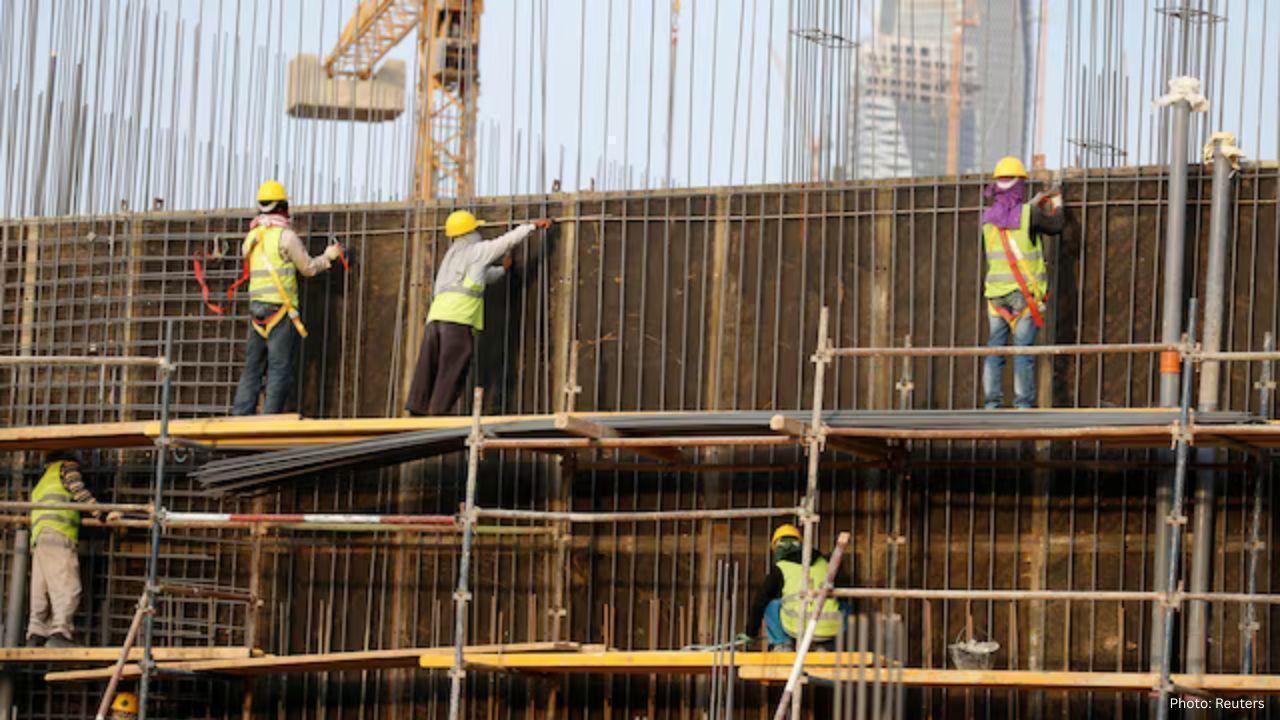You have not yet added any article to your bookmarks!

Join 10k+ people to get notified about new posts, news and tips.
Do not worry we don't spam!

Post by : Anis Farhan
Hong Kong has long faced intense summer rain, but never like this. Between late July and mid-August 2025, the city endured four black rainstorm episodes within just eight days, with a fifth following soon after—marking the highest frequency ever recorded. One storm unleashed more than 350 millimetres of rainfall within 24 hours—the heaviest August downpour in over a century. The “black” rainstorm alert, the city’s highest warning level, was triggered repeatedly as floodwaters engulfed roads, hospitals, and neighborhoods.
Experts say this succession of extreme events isn't just a freak occurrence—it’s a flashing signal pointing to deeper weaknesses in our climate readiness.
Meteorologists and climate scientists have been piecing together what drove this barrage of extreme rainfall. Using advanced radar and AI-driven models, researchers tapped into three-dimensional wind field data to uncover the complex atmospheric triggers.
Their findings highlighted a convergence of powerful factors: surface airflow clashes, mid-level atmospheric waves, and jet stream shifts—all aligning to amplify intense convection. Notably, global AI weather models successfully forecasted two of the major storms up to a week in advance, suggesting predictive potential exists—but current planning systems remain decades behind.
The cascading storms overwhelmed Hong Kong’s aging infrastructure. Thoroughfares turned into turbulent rivers; drain systems choked; commuters, students, and medical patients were stranded indoors. With floods erupting across the Central and Western districts and near major hospitals, authorities responded by cancelling schools, suspending flights, and even pausing legal proceedings.
The Drainage Services Department admitted that despite frequent cleaning operations, sudden blockages from debris and fallen foliage during extreme rain cannot be fully prevented. This fragility highlights a painful truth: when climate changes outpace infrastructure upgrades, chaos becomes inevitable.
These black rainstorms have exposed deep flaws in how Hong Kong plans for climate threats. City planners continue to base infrastructure decisions on outdated models, while emissions targets remain vague and unenforceable. Emergency planning tends to be reactive rather than proactive, leaving workers, residents, and businesses vulnerable.
Leading scientists warned that unless planning models reflect the current—and accelerating—reality of rainfall and rising seas, infrastructure will constantly be playing catch-up. Activists are calling for immediate reform, transparency, and public consultation as the city updates its Climate Action Plan.
Behind every statistic is a human story. Workers stranded in flooded streets, children missing classes, hospitals struggling to keep clinics open—the storms have revealed the human cost of climate inaction.
Economic damages are already mounting. Tens of thousands experienced disruptions—around a fifth of flights were cancelled. Streets turned impassable; emergency services scrambled. Mental health impacts are likely to follow, as communities grieve loss, trauma, and a growing anxiety over what's next.
This wasn’t Hong Kong alone feeling climate’s fury. The wider region—from Guangdong to Thailand—has seen extreme weather unfold in recent weeks. Torrential floods have devastated parts of southern China, while monsoon systems packed unusual moisture and intensity. These events feed into a sobering truth: Asia’s climate volatility is surging and so far, largely unmitigated.
These events don’t just expose faults—they offer lessons:
Innovate Forecasting Systems: Hong Kong’s early success with AI forecasting should spur greater investment in predictive tools at synoptic and storm scales.
Invest in Green Infrastructure: Traditional drainage may no longer suffice. Think green roofs, permeable surfaces, flood retention areas—all help absorb water and reduce runoff.
Revise Building Codes: New constructions should be designed to withstand not just heavier rain, but flash flooding, power outages, and prolonged disruptions.
Mobilize Climate Diplomacy: Hong Kong’s storms are a regional symptom of global warming. Collaboration, knowledge-sharing, and solidarity may help cities adapt faster.
Hong Kong’s brutal summer should be a turning point. Updating warning systems, infrastructure design, and policy timelines isn’t optional—it’s survival. But true resilience means shifting from reaction to anticipation, from models rooted in the past to strategies built for tomorrow.
As authorities roll out the next iteration of the Climate Action Plan, what must emerge is a movement—not just policy. Schools, businesses, civil society, and every resident must become part of a unified climate response—not in fear, but in preparedness.
When the skies grow darker, Hong Kong’s future depends on how brightly it decided to shine back.
This article synthesizes recent scientific reports and media coverage. It is intended for information and analysis, not official guidance or policy direction.










Two Telangana Women Die in California Road Accident, Families Seek Help
Two Telangana women pursuing Master's in the US died in a tragic California crash. Families urge gov

Ranveer Singh’s Dhurandhar Roars Past ₹1100 Cr Worldwide
Ranveer Singh’s Dhurandhar stays unstoppable in week four, crossing ₹1100 crore globally and overtak

Asian Stocks Surge as Dollar Dips, Silver Hits $80 Amid Rate Cut Hopes
Asian markets rally to six-week highs while silver breaks $80, driven by Federal Reserve rate cut ex

Balendra Shah Joins Rastriya Swatantra Party Ahead of Nepal Polls
Kathmandu Mayor Balendra Shah allies with Rastriya Swatantra Party, led by Rabi Lamichhane, to chall

Australia launches review of law enforcement after Bondi shooting
Australia begins an independent review of law enforcement actions and laws after the Bondi mass shoo

Akshaye Khanna exits Drishyam 3; Jaideep Ahlawat steps in fast
Producer confirms Jaideep Ahlawat replaces Akshaye Khanna in Drishyam 3 after actor’s sudden exit ov